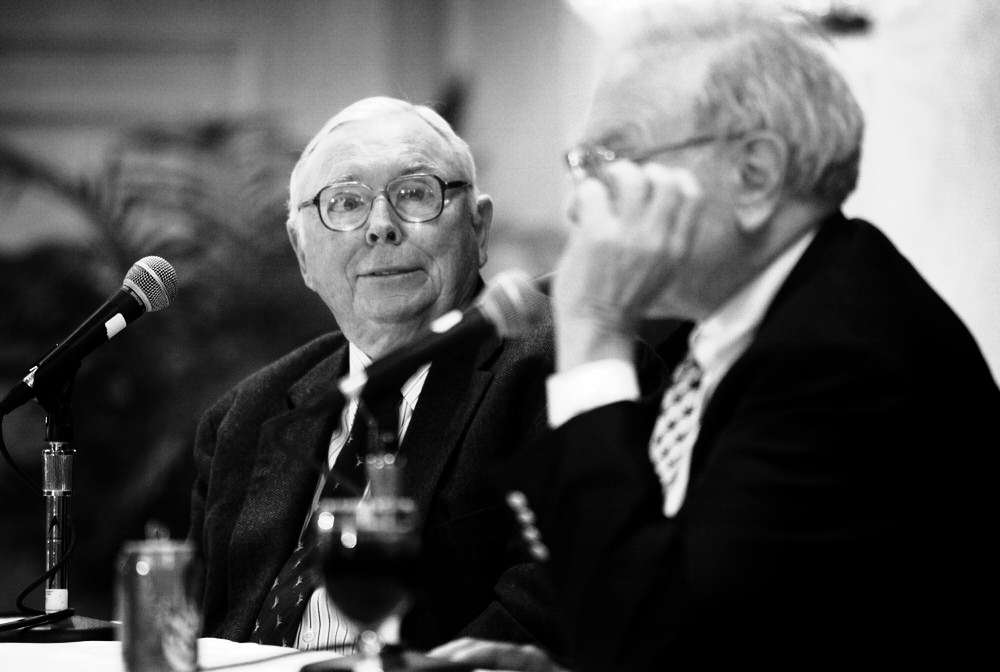by Franklin Templeton Investments blog, Franklin Templeton Investments
Last week once again proved to be uninspiring for global equity markets, as investors faced mixed headlines on trade tensions and political uncertainty in the United States. Positive catalysts were generally lacking. In addition, we saw little progress on Brexit as the United Kingdom stumbles ever closer to the scheduled October 31 departure date from the European Union (EU) with no agreed-upon deal.
The Digest
No Sign of Clarity on Brexit Uncertainty
 Last week provided some drama in the United Kingdom as members of parliament (MPs) returned to Westminster following a Supreme Court ruling that UK Prime Minister Boris Johnson’s suspension of parliament was unlawful.
Last week provided some drama in the United Kingdom as members of parliament (MPs) returned to Westminster following a Supreme Court ruling that UK Prime Minister Boris Johnson’s suspension of parliament was unlawful.
Supreme Court Overrules Johnson
The loss in court was extremely embarrassing for Johnson and, subsequently, there were calls from opposition leaders for him to resign. However, Johnson stated he would stay on to lead the United Kingdom out of the European Union (EU).
In terms of the Brexit outcome, it’s hard to see what material change this brings. These events will likely undermine Johnson’s negotiation position as he will face greater scrutiny and the embarrassment will surely undermine his authority. If anything, the poisonous atmosphere in Parliament following its recall makes it hard to see any deal proposed by Johnson gaining cross-party support.
Benn Act Remains in Focus
The focus remains on the Benn Act. That legislation requires the UK government to seek a Brexit extension should it fail to secure a new deal which is agreeable in the UK Parliament. Johnson enraged opposition MPs by referring to the legislation as the “Surrender Act”, as he believes it removes the ability of UK negotiators to walk away from deal talks with the EU, handing initiative to his counterparts in Brussels.
Election Ahead?
One of the biggest questions is when a general election might be triggered. The opposition Labour Party says it will support an election only after the government secures an extension to Article 50 and once the threat of “no-deal” is off the table.
The latest polls suggest Conservative support has risen since Johnson became prime minister, while support for Labour has flat-lined. However, the picture is nuanced, with the anti-Brexit Liberal Democrat party taking Remain support from Labour and the Brexit Party potentially taking support from the Conservatives.
On a related note, the Labour Party continued to push a left-leaning economic agenda during its party conference last week; for example, proposing a four-day working week. That has prompted questions about how markets might react to a possible Labour government under Jeremy Corbyn.
Market Reaction
Sterling closed the week down versus the dollar. Commentary from Bank of England monetary policy committee member Michael Saunders weighed on the pound. He said the United Kingdom might need to cut interest rates even if a hard-Brexit were to be avoided.
Meanwhile, the export-heavy FTSE 100 Index closed the week up, outperforming much of Europe.1
European Macro Worries
 There was cause for concern in Europe on the macro front last week. The week started with some dismal eurozone purchasing manager index (PMI) data.
There was cause for concern in Europe on the macro front last week. The week started with some dismal eurozone purchasing manager index (PMI) data.
Data from Germany was particularly poor as manufacturing PMI from the country fell to its lowest level since mid-2009. Uncertainty about trade wars, Brexit and the automotive industry were all cited as catalysts.
The overall composite PMI for Germany fell into contractionary territory for the first time since early 2013. On the same day as this data was released, European Central Bank (ECB) President Mario Draghi said the eurozone economy faced a more “prolonged sag” than had been expected even in recent months, justifying the recently announced monetary easing.
There was some respite later in the week as eurozone business lending data eased recession fears slightly, growing at its fastest pace in a decade.
Importantly, in Germany—where recession risk looks high—lending growth was above average. Still, much of the European data is dramatically lagging global readings. Draghi had pushed for more fiscal stimulus from individual members of the eurozone in his last press conference.
France was the latest to release supportive policy, announcing €10.2 billion in tax cuts. French Finance Minister Bruno Le Maire said that while low interest rates wouldn’t restore prosperity, they could create an opportunity for governments that can afford to invest to do more.
Le Maire also urged Germany to step up its own fiscal support. Germany has announced a package of Green Investment Support, but the extent of this was seen as underwhelming by many.
For her part, German Chancellor Angela Merkel acknowledged that governments should do more but did not make clear whether Berlin was ready to follow.
Whether Germany does act, and to what extent, will likely be a focus for the ECB and other EU member states in the coming weeks and months.
Europe
European equities snapped a five week streak of gains, in what was a relatively quiet week. As noted, the UK equity market generally outperformed, although this was a result of the weakness in the pound. UK domestic names struggled.
Meanwhile, European cyclicals underperformed and defensives were the winners in a retracement of some of the rotation we had seen in previous weeks. The autos were the worst performers, followed by miners, although both of these managed to catch a bid towards to end of the week and limit the downside. Real estate investment trusts (REITs), utilities and travel & leisure were generally the biggest beneficiaries.
Americas
US equities drifted lower on the week as news of the impeachment inquiry into President Donald Trump snowballed. US-China trade tension headlines were mixed.
Defensive sectors—notably utilities and staples—outperformed. Health care stocks sagged as the US Congress has been looking into drug pricing.
The energy space also lagged as crude oil prices gave back some recent gains thanks to a quieter week in the Middle East.
We saw heightened political uncertainty in the United States as the Democrats embarked on an impeachment inquiry into President Trump. While this generated a lot of headlines, the financial market reaction wasn’t too extreme. Market moves were muted and volumes remained fairly subdued at lower than recent-average levels.
On the day the impeachment news broke, Trump came out with the statement a deal with China could happen “sooner than you think”. The cynic could argue this was merely a distraction technique, but it did lend some support to markets. However, the mood on trade talks soured at the end of the week after press reports suggested the US government is looking at ways to limit US investment into Chinese assets, including preventing Chinese companies listing in the United States.
Asia
Asian markets were lower across the board last week. Mainland Chinese equities declined amid weaker macro data and lingering protests in Hong Kong. The Chinese commentary on economic conditions showed the economy in the third quarter at its weakest for a year, with a worsening picture in manufacturing, property and service sectors. In addition, there was no real tangible progress on US-China trade talks to galvanise equity markets in the region.
Japanese markets saw smaller declines as Trump and Japanese Prime Minister Shinzo Abe agreed on the first stage of a trade agreement.
Weak chip export data weighed in South Korea. The country’s main stock market index closed last week in the red.
Week Ahead
It’s shaping up to be quiet week in Asia, with China now closed for holidays until next week. In the United Kingdom, focus at the start of this week will be on the Conservative Party Conference, with Brexit remaining the key topic.
Economic Data
- Europe: Manufacturing PMIs on Tuesday; eurozone retail sales on Thursday.
- USA: Manufacturing PMIs and vehicle sales on Tuesday; Non-manufacturing PMIs and factory orders on Thursday; Labour market report and trade balance on Friday.
Politics
- Any further developments regarding the Trump impeachment will be front and centre.
- In the UK, the Conservative Party Conference runs until Wednesday. There has been some speculation that the Scottish National Party (SNP) is considering a vote of no confidence in Boris Johnson this week, with a view to installing a unity government that would then request an extension to Article 50.
- The World Trade Organization (WTO) is due to release a report allowing US tariffs on European products. This could put US/EU trade relations in focus.
Monetary Policy
- Reserve Bank of Australia meeting on Tuesday.
- ECB and US Federal Reserve speakers through the week, with Fed Chairman Jerome Powell speaking on Friday.
Holidays
- Chinese national holidays start on Tuesday with markets closed for the rest of the week.
- Germany is closed on Thursday.
Views You Can Use
Insight from Our Investment Professionals
Real Assets Could Be the Alternative
Given the backdrop of a slowing global economy and shaky investor sentiment tied to trade tensions, Franklin Templeton Multi-Asset Solutions’ Ed Perks and Gene Podkaminer are calling for an active investment approach. In the latest edition of “Allocation Views,” they outline six major themes driving their current views: slower global growth, subdued inflation, monetary policy effectiveness, the importance of nimble management, real assets, and alternative assets that aren’t really alternative enough. Read More.
The Fed Calls Time for a Reality Check
The US Federal Reserve cut its benchmark short-term interest rate for the second time this year, but some observers were disappointed the Fed didn’t more strongly signal future easing moves. Franklin Templeton Fixed Income CIO Sonal Desai shares her thoughts on why the central bank needed to rein in expectations a bit. Read More.
How ETFs Can Help Address Changing Client Expectations
Across Europe, we’re seeing evidence that exchange-traded funds are playing a more prominent role in investors’ portfolios. However, Jason Xavier, Head of EMEA ETF Capital Markets at Franklin Templeton, still encounters advisers who remain unconvinced of the merits of ETFs. In this article, he argues that ETFs have a central role to play for the investors of tomorrow. Read More.
People in Hong Kong and mainland China aren’t saving enough for retirement, running the risk of outliving assets during their golden years, according to Franklin Templeton’s 2019 Retirement Income Strategies and Expectations (RISE) survey. Even so, most survey respondents are aware of their retirement funding options and are comfortable with what they mean. Alan Young, head of institutional businesses, Greater China, and Stephen Tong, portfolio manager, Franklin Templeton Multi-Asset Solutions, look at how some savers are missing out on potential opportunities. Read More.
Pinpointing Fixed Income Credit Risks
In this excerpt from the latest Franklin Templeton Thinks, Franklin Templeton Fixed Income Group examines how machine learning techniques can measure the risks of consumer and home loans—helping pinpoint credit risks they think are worth taking. They review digital loans, a relatively new asset class, and explain why quantitative approaches may be more applicable to some fixed income sectors than others. Read More.
For timely investing tidbits, follow us on Twitter @FTI_Global and on LinkedIn.
Important Legal Information
This article reflects the analysis and opinions of Franklin Templeton’s European Trading Desk as of 30 September 2019, and may vary from the analysis and opinions of other investment teams, platforms, portfolio managers or strategies at Franklin Templeton. Because market and economic conditions are often subject to rapid change, the analysis and opinions provided may change without notice. An assessment of a particular country, market, region, security, investment or strategy is not intended as an investment recommendation, nor does it constitute investment advice. Statements of fact are from sources considered reliable, but no representation or warranty is made as to their completeness or accuracy. This article does not provide a complete analysis of every material fact regarding any country, region, market, industry or security.
Nothing in this document may be relied upon as investment advice or an investment recommendation.The companies named herein are used solely for illustrative purposes; any investment may or may not be currently held by any portfolio advised by Franklin Templeton.
Data from third-party sources may have been used in the preparation of this material and Franklin Templeton (“FT”) has not independently verified, validated or audited such data. FT accepts no liability whatsoever for any loss arising from use of this information and reliance upon the comments, opinions and analyses in the material is at the sole discretion of the user. Products, services and information may not be available in all jurisdictions and are offered by FT affiliates and/or their distributors as local laws and regulations permit. Please consult your own professional adviser for further information on availability of products and services in your jurisdiction.
What Are the Risks?
All investments involve risk, including possible loss of principal. The value of investments can go down as well as up, and investors may not get back the full amount invested. Stock prices fluctuate, sometimes rapidly and dramatically, due to factors affecting individual companies, particular industries or sectors, or general market conditions. Bond prices generally move in the opposite direction of interest rates. Thus, as prices of bonds in an investment portfolio adjust to a rise in interest rates, the value of the portfolio may decline. Investments in foreign securities involve special risks including currency fluctuations, economic instability and political developments. Investments in developing markets involve heightened risks related to the same factors, in addition to those associated with their relatively small size and lesser liquidity.
Past performance is not an indicator or guarantee of future performance.
Links to External Sites
Franklin Templeton Investments is not responsible for the content of external websites.
The inclusion of a link to an external website should not be understood to be an endorsement of that website or the site’s owners (or their products/services).
Links can take you to third-party sites/media with information and services not reviewed or endorsed by us. We urge you to review the privacy, security, terms of use, and other policies of each site you visit as we have no control over, and assume no responsibility or liability for them.
1. Indices are unmanaged and one cannot directly invest in them. They do not include fees, expenses or sales charges. Past performance is not an indicator or guarantee of future results.
This post was first published at the official blog of Franklin Templeton Investments.














